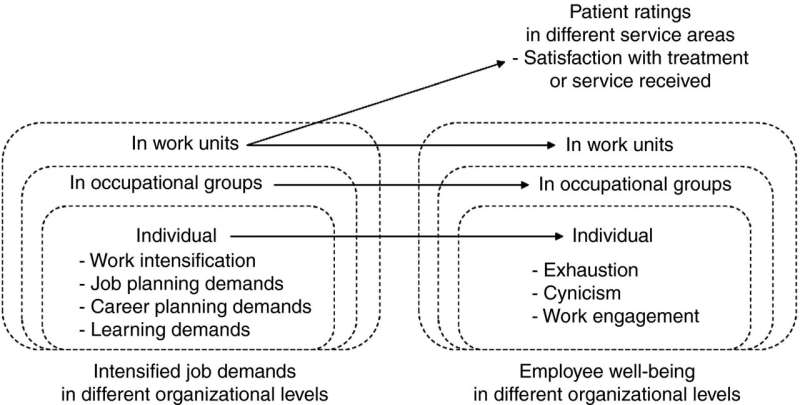
Researchers from the Department of Psychology at the University of Jyväskylä clarified how the staff of a healthcare district experienced increasing job demands, and how the demands were connected with wellbeing at work. In addition, the study clarified whether the demands on employees were reflected in customer satisfaction.
In the study, more than a thousand employees evaluated their experiences of intensified job demands, work exhaustion, and work engagement. In addition, almost a thousand patients of the healthcare district evaluated how they were treated by the healthcare staff.
As the researchers had expected, healthcare staff’s experience of increased time pressure and workload were connected with greater exhaustion. Employees working in emergency care and nurses had an especially high risk of exhaustion.
In addition, the work community’s shared experience of increased job planning demands was connected with greater exhaustion and lower customer satisfaction. This was especially observed in the staff of leadership services.
“A surprising observation was that none of the intensification demands was positively connected with work engagement,” says Senior Lecturer Mari Huhtala. “In the light of previous studies, employees may find some demands such as learning new things positive challenges, especially when the demands are reasonable. However, this was not the case with the studied healthcare employees. It is possible the general workload in healthcare has led to these positive challenges being experienced as additional stress as well.”
The research data were collected using an electronic survey in the autumn of 2019. The study will continue in the autumn of 2021 with the collection of follow-up data.
Source: Read Full Article
